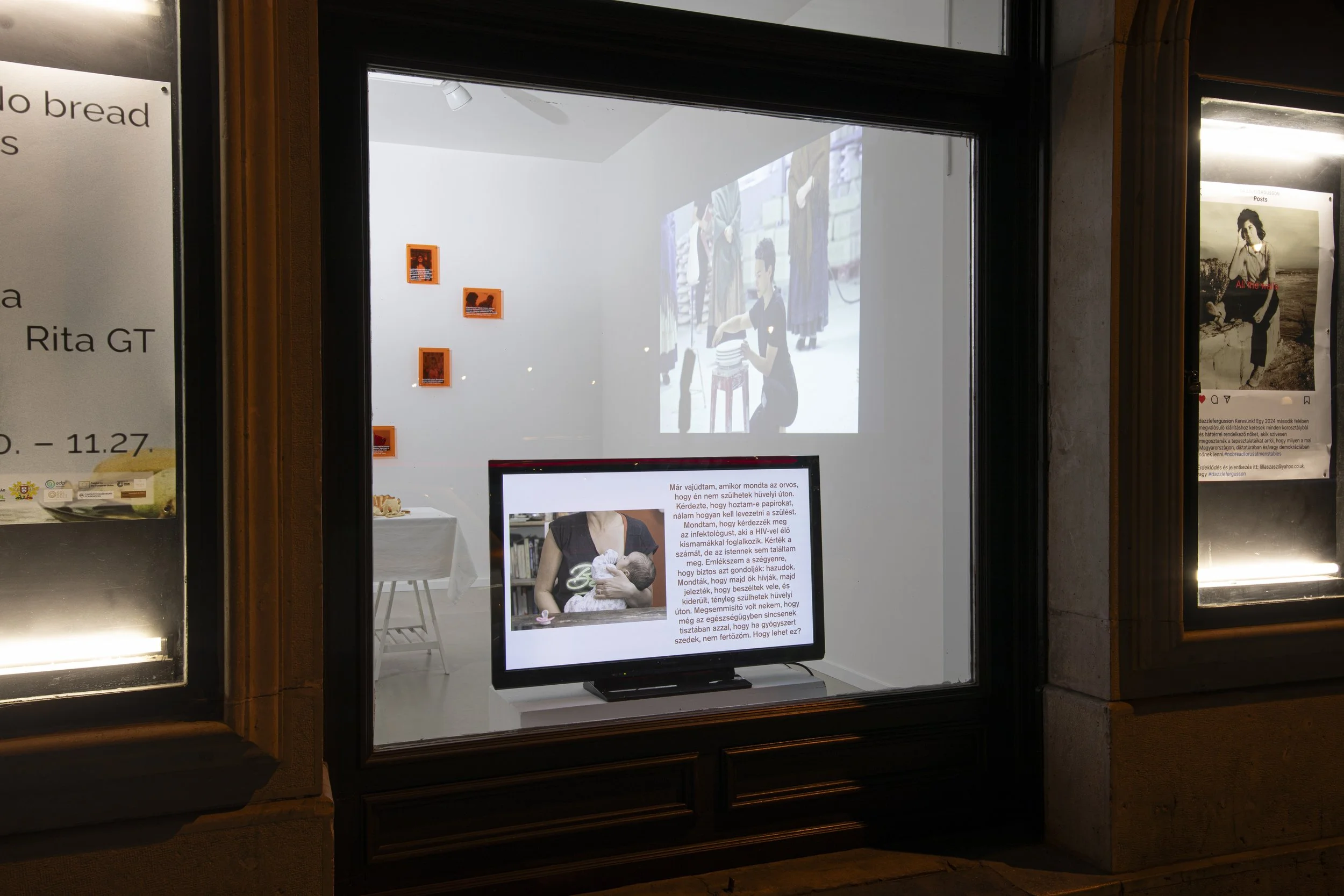Rita GT & Lilla Szász: No Bread for Us
Liget Gallery, Budapest, Hungary
October 10 – November 27, 2024
Rita GT & Lilla Szász: No Bread for Us
Featuring the works of Hungarian photographer Lilla Szász and Portuguese multidisciplinary artist Rita GT, No Bread for Us explores the rules and boundaries women face throughout their lives in dictatorships and modern societies, beginning with the colonial and Salazar-era history of Portugal and ending on the struggles of present-day Hungarian society.
1_Lilla Szász: Captured Liberties (2018–ongoing)
Captured Liberties explores Salazar-era womanhood through the personal story and family photo archive of Maria Teresa Braz (b. 1949), a Portuguese woman whose childhood and youth took place within the framework of the Salazar dictatorship. Her childhood and early adulthood were photographed and filmed by her father, and these private images offer a glimpse into what it might have been like to live and grow up in Salazar’s Portugal. Szász has been collaborating with Braz for years, working with the family archive and photographing her. In this latest iteration of the series, Szász playfully juxtaposes Braz’s archival photographs with text from the seminal feminist literary collection New Portuguese Letters. Compiled by three Portuguese women who became known internationally as “The Three Marias,” the topics they covered ranged from marriage and obedience to abandonment and isolation. Edited in May 1971 and published in the following year, the first edition of the book was confiscated and destroyed by Portuguese censors three days after its release.
2_Lilla Szász: No Bread for Us at Men’s Tables (2023–ongoing)
No Bread for Us at Men’s Tables grew out of Szász’s research into the lives of women under dictatorship and her curiosity about women’s roles and the meaning of freedom in contemporary Hungarian society. The series consists of a powerful set of portraits and excerpts from interviews with women of all backgrounds, who shared their experiences with the artist throughout the past year. Searching for the meaning of liberty, they covered intimate questions related to fertility, aging, and paying taxes.
3_Rita GT: Unearthing (2021)
Portuguese artist Rita GT’s practice explores themes of memory, identity, and human rights, often incorporating materials such as clay, ceramics, and food into her performances. In her latest video piece, Unearthing, GT choreographed a choral and movement performance for 13 women (the Cantadeiras do Vale do Neiva choir), set within an installation she created in an abandoned ceramics factory in her hometown of Viana do Castelo, northern Portugal. The traditional songs and chants featured in the video traveled with women who were forced to leave their homes during the colonial era—either to work in the fields while their husbands waged wars or to accompany them to the colonies—commemorating and unearthing their untold histories. Ceramics, a symbol of Portuguese culture, highlights women’s sacrifices on both sides of patriarchal colonialism: from the clay pots destroyed by Christian missionaries in Africa and Brazil, to the ceramics smashed by the sea during voyages with settler husbands.
4_Rita GT: Like a Woman, performance: October 16, 18.30.
Creating a new iteration of her performance entitled Like a Woman (2019–), GT will perform in the gallery on October 16, reflecting on the myriad roles women have to navigate throughout their lives. This performance will engage with the voices presented in Szász’s works, while leaving behind installative elements (bread!) that will remain in the gallery as part of the exhibition.
Curator: Veronika Molnár
Curatorial Assistant: Ágnes Keszegh
Graphic Design: Veroni Bátfai
The exhibition is supported by: Instituto Camões, Embassy of Portugal, Culture Moves Europe, Gulbenkian Foundation, EDP Renewables, Dúzsi Winery, Sol Deli, Arquivo Municipal de Lisboa Videoteca
Special thanks to the gallery team: Lenke Barabási, Fruzsi Szabó
The graphic design for No Bread For Us at Men’s Tables was created by Zoltán Szmolka.
Photos by Barnabás Neogrády-Kiss.















